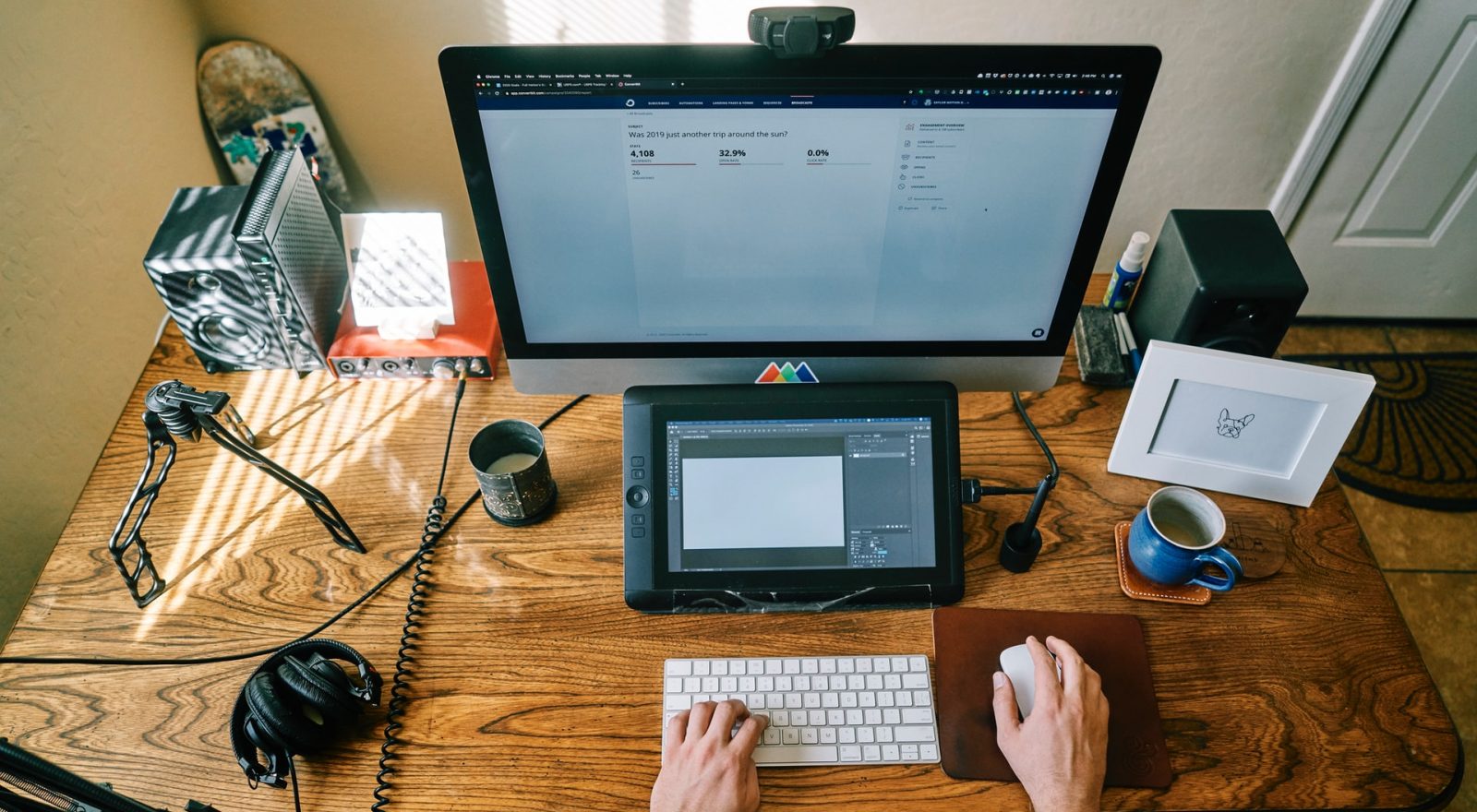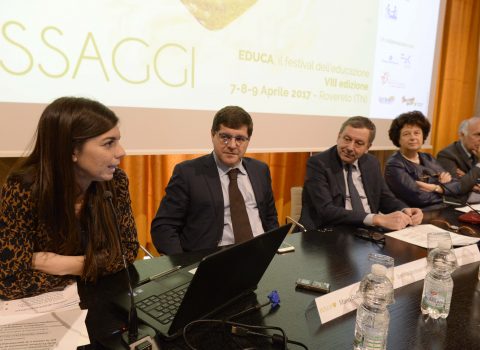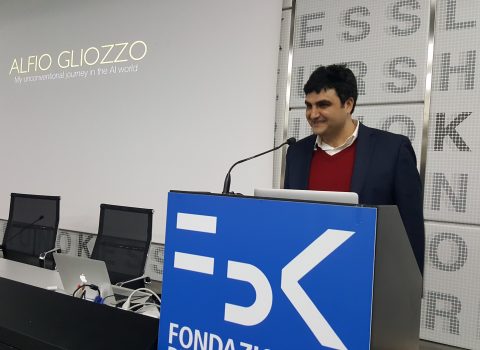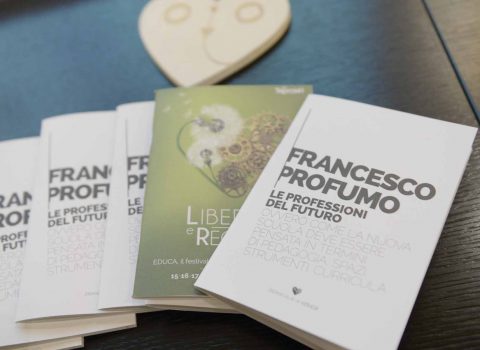
Smart working, the FBK model
Tackling the new challenges of hybrid work by innovating
The new frontier of flexible work organization is a hybrid system that finds the drivers to overcome space-time and cultural constraints in digitization and liquid organization.
According to a recent international research presented by Microsoft Italy[1] 77% of Italian companies have adopted flexible working models, compared to 15% in 2019 and 66% of employees will also work remotely post-emergency at least one day a week. 87% of Italians found productivity to be equal to or higher than when they worked in the office, but the capacity for innovation seems to have decreased: only 30% of managers believe their company has an innovative culture, compared to 40% in 2019.
To face this historic change, we need technology tools and a legal and regulatory approach that, in many ways, has never been explored before. We need an organization that believes in the change underway and that can interpret in an innovative way, or even anticipate, the technical and cultural aspects that the “smart” revolution imposes.
“The point, however, is this, it is not the digital tools that make the difference, but the people who know how to use them and who experiment with new ways to reach the objectives […] – wrote Andrea Albanese a few days ago on Linkedin – In other words, and to be down to earth: who makes the difference in the kitchen, the chef and the team, or the ingredients and the equipment? And in digital technologies and on social media, who makes the difference? the smartphone, the connection, the social networks, or the people who use these tools?”.
This is the crux of the matter: transition, to be effective, must be guided by people, their skills and a “people management” increasingly attentive to enhancement and empowerment, involvement and a pact of reciprocity and trust involving every single component of the organization.
During 2020, we have witnessed a profound change in the way we live and work. The revolution represented by the “smart working boom”, led to a sudden and forced break that led us to rethink the approach to our work in an (un)stable balance between “in presence” and “remotely”.
The Covid-19 emergency and the consequent lockdown have pushed organizations to find new work solutions: in eight weeks, we reached a level of digitization that was estimated to be achievable in five years. Smart working has now become part of the “routine” work life.
Tech giants such as Google, Facebook and Twitter have adopted remote work, and it is now clear that traditional “offices” are destined to become a thing of the past.
The Foundation has faced the pandemic by taking actions, at an organizational level, that were later adopted nationally and locally. This approach has proven functional to the needs of physical and mental well-being, integrity and inclusiveness of the people who have thus always been placed at the center of the organizational model. The new work organization model, which is expected to be implemented in the Foundation in 2021, will build on the pilot project activated during the crisis.
At the base of the FBK model is a platform for a new reciprocity pact that anticipates a growing trend of social and local experimentation and innovation. Among the three pillars of the platform:
- INNOVATION AND AGILE WORKING for the sake of a technological and digital transition that will support organizational solutions oriented towards dematerialization, delocalization and mobility;
- DEVELOPMENT AND TRAINING marked by a vision of the individual as a unit of knowledge, skills, values and needs that will favor a relation and cognition-based work context;
- PROXIMITY WELFARE which aims at a system of relations open to the social context that will support services centered on self-help and innovative forms of welfare.
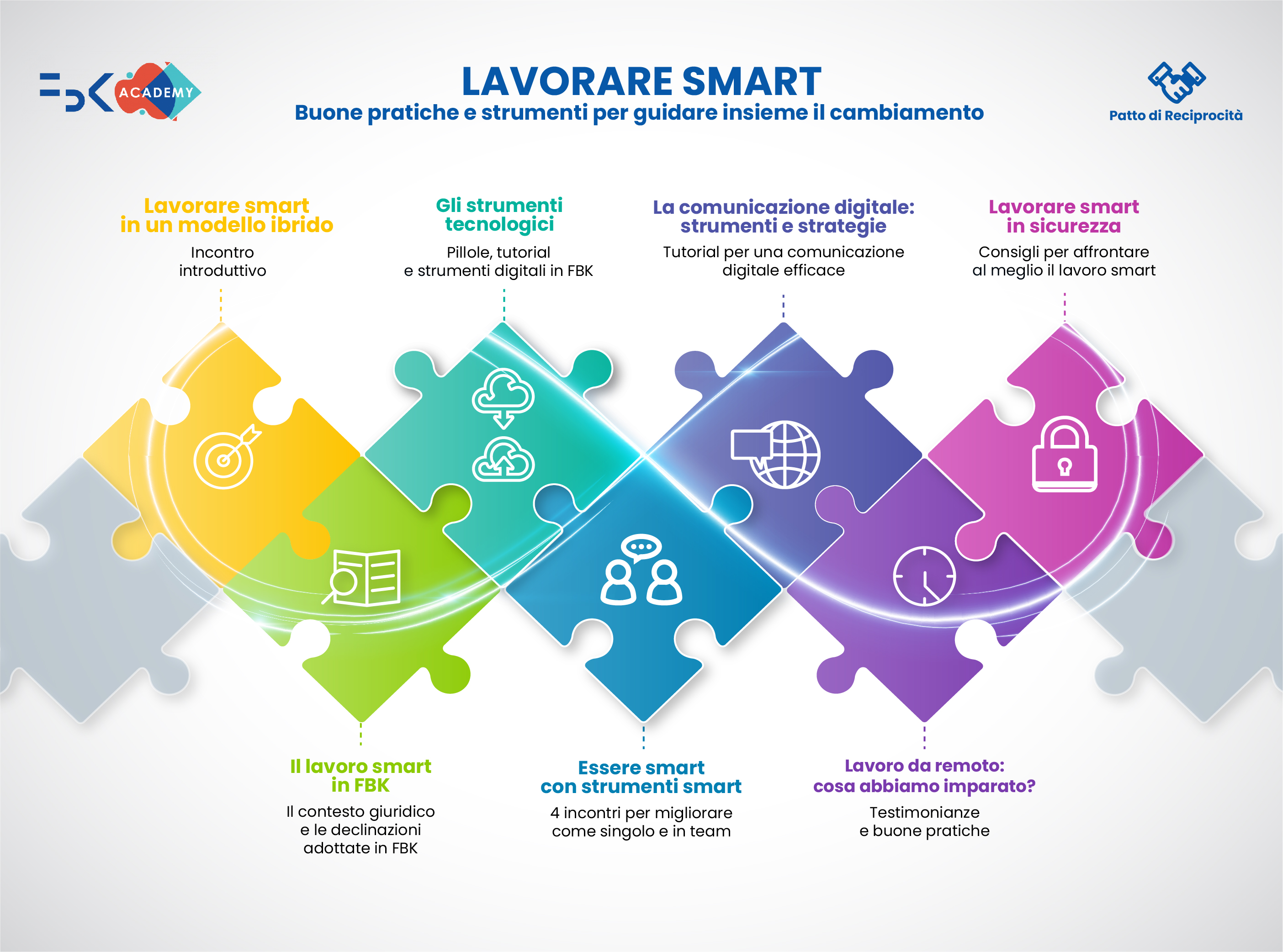
The “Lavorare smart” in FBK training program
[1] * International survey commissioned by Microsoft to Boston Consulting Group and KRC Research and conducted in August 2020, involving over 9,000 managers and employees of large companies in Western Europe, including over 600 in Italy.
